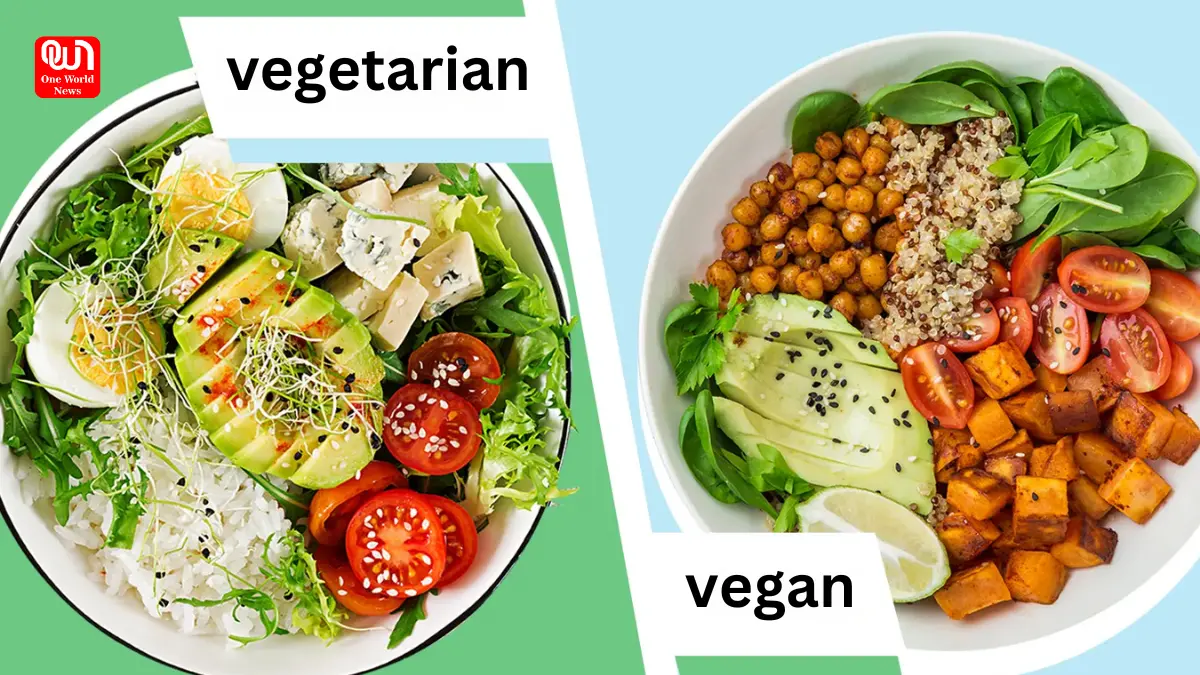Understanding the Distinction: Vegan vs. Vegetarian
Explore the key differences between vegan and vegetarian diets, including their principles, nutritional considerations, and ethical impacts, in this comprehensive guide.
Vegan vs. Vegetarian: A Comprehensive Guide to Understanding Their Differences and Benefits
It is important to note that vegetarian and vegan are two terms that are frequently used interchangeably, but which signify two different ways of eating. Although these two diets are founded on the intake of plant-based products, the guidelines and limitations are quite distinct. It is important for anyone who is contemplating a plant-based diet switch to comprehend these distinctions.

Read more: Top 5 Simple Tricks To Remove Negative energy From Your Home
Definition and Core Principles
Vegetarianism: Vegetarians refrain themselves from using animal products particularly meat, poultry and fish. But, they normally consume such food products as milk and dairy products, as well as eggs. undefined
Lacto-vegetarians: Add products such as milk but do not include eggs.
Ovo-vegetarians: While they are allowed to include eggs, dairy products should not be incorporated.
Lacto-ovo vegetarians: It is recommended to include both foods containing dairy products and foods with eggs.
People go for vegetarianism for different reasons, such as; Vegetarianism is good for your health, it’s an ethical issue, and it’s an environmental issue.
Read more: Delightful Aamras: A Simple Recipe to Enjoy Mango Bliss at Home
Veganism: While vegetarians avoid consumption of animal products, vegans on the other hand, exclude all products that originate from animals from their system. This means no animal based foods such as meat, poultry, fish, dairy products, eggs and ofcourse no honey. And last but not the least, veganism entails a complete dietary change, clothing choice, excluding leather, wool and other animal-based products. The philosophy is based on respecting animals, preserving nature and the Earth, and practicing healthy living.
Dietary and Lifestyle Implications
Nutritional Considerations: Vegans and vegetarians take their diets with special care regularly to obtain certain nutrients that are found in products of animal origin. While among vegetarians, it may really be an advantage to include sometimes eggs and other dairy products in their meal too. Vegans are known to use nutrient-fortified foods and nutrients and mostly in B12 vitamin iron, calcium and omega-3 fatty acid nutrients.
Ethical and Environmental Impact: It is essential to note that vegans do everything in their power not to hurt any animal and it is also important for them to be as environmentally friendly as possible. In their view, production of animal products such as dairy and eggs is responsible for pollution and cruelty towards animals hence, are avoided in vegan diets. Lastly, other groups of people such as vegetarians are also very beneficial because they minimize their usage of meat and therefore they are helpful in the emission of greenhouse gases and the conservation of resources.
Like this post?
Register at One World News to never miss out on videos, celeb interviews, and best reads.








